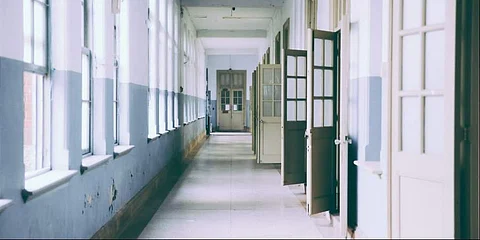Not able to access online education makes children feel poor, inferior: Why activists have filed a PIL in Kerala HC
Every year, Kerala schools reopen for the new academic year on June 1. The convention wasn't altered even in 2020, despite the pandemic and the lockdown. In a historic move, the state reopened all its schools online. Lessons were streamed online and were broadcast on television. The initiative was lauded by many for its innovation.
But, there is a flip side to this.
The same day, Devika Balakrishnan, a 14-year-old set herself ablaze and died. The ninth-grader apparently did not have a smartphone or laptop to attend her lectures and the television at her house was damaged. This had raised a lot of questions about the already prevalent digital divide in Kerala. On June 2, a group of activists had submitted a PIL at the High Court, asking the government to arrange the necessary facilities to the poor students of the state and to enable them to attend these classes.
Devika took her life on June 1
Elaborating on the reasons behind filing this petition, the petitioner's counsel P K Shanthamma says, "A majority of the tribal students in the state do not know about any of these initiatives. They do not even have mobile phones. They know that schools are reopening, but they don't even know what online education is. These children are completely helpless," she says.
Shanthamma tells us how the new initiative violates Article 21-A of the constitution which mandates free and compulsory education to all the children. "Additionally, the local bodies are to provide these children with the necessary equipment and materials. They fave failed to fulfill this responsibility of theirs. They can't turn a blind eye to it. These children are here being denied their basic rights," she says.
Shanthamma says that the order violates Article 21A of the constitution
This lawyer, who also works closely with the minorities tells us that the petition was already underway when Devika died of suicide. "More than not having a gadget, the thought of being inferior would have deeply affected that child. She was constantly haunted by lower economic status. Her parents could not afford to repair a TV," she says. Devika's father was reportedly jobless because of the lockdown. "Imagine having your right to study being thrown away all of a sudden, just because you are poor. This decision by the government has literally created two different types of citizens — the rich who have access to education and the poor who do not," she says.
Shanthamma clarifies that neither she nor the petitioners are against online education. "I'm not against online education. This is the way forward. But when you're implementing it, make sure that nobody is left out. Here, the poorest are kept aside," she says. "These children are already denied a lot of opportunities and face a lot of discrimination. I want the government to bridge this gap, make education accessible for all and teach them the portions that they have missed out," she adds.


